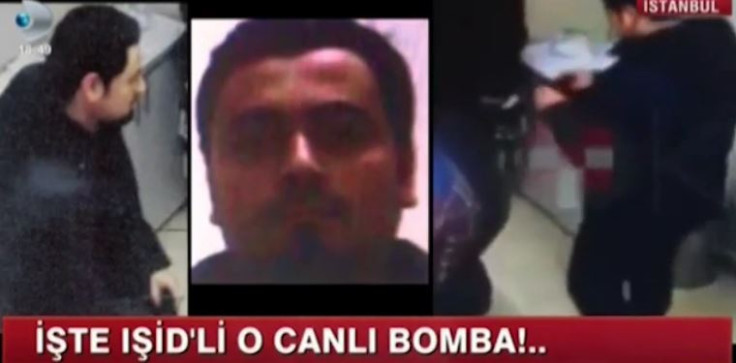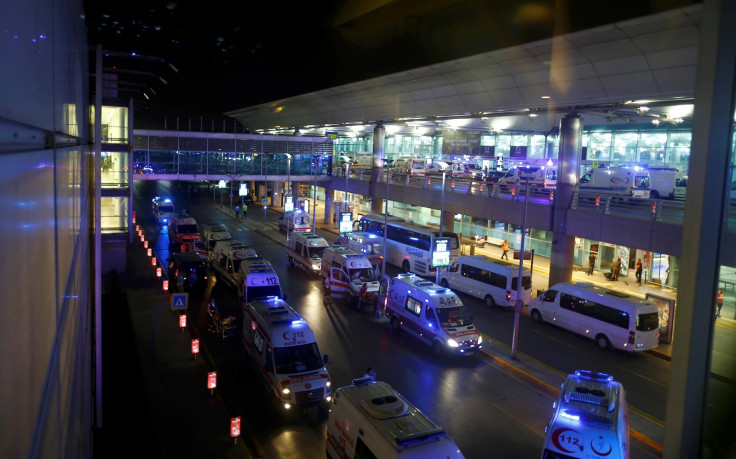Istanbul Ataturk bombing 8th terror attack targeting civilians this year as Turks battle Isis, PKK and TAK
Out of the 11 fatal terrorist incidents in Turkey this year 8 have killed civilians.
On 28 June 2016 Istanbul's Ataturk International airport became the latest target for terrorists battling the Turkish state. The airport, named after the country's founding father and first President, General Mustafa Kemal Atatürk, felt the force of what is suspected to be a double suicide bombing with dozens killed at the arrivals area of the building.
Terror attacks in Turkey have seen an upsurge this year as President Recep Tayyip Erdoğan battles both the Islamic State (Isis) and Kurdish terror groups. In an example of their latest attacks on Daesh (Isis) the Turkish artillery and coalition air strikes hit 33 targets held by the Sunni militant group on 20 June killing 23 Isis fighters.
But this conflict is relatively new compared to the battle with the autonomy-seeking Kurds based in the south east of the country. The conflict has claimed more than 40,000 lives, mainly Kurdish, since 1984 with the government forces fighting both the Kurdistan Workers Party (PKK) and the violent off-shoot the Kurdistan Freedom Falcons (TAK).
In 2016 there had been 11 major terror attacks on the Turkish mainland with eight of the attacks claiming the lives of civilians. Here we list the eight attacks that have killed civilians:
On 12 January, a suicide attack in Istanbul's historic Sultanahmet district killed 13 people, all foreigners, with 14 injured. Of those, 12 were German citizens and one was Peruvian with the attacker, Nabil Fadli, 28, a registered Syrian refugee, described as a foot soldier for IS according to Turkish media reports.

Then on 17 February, in Ankara at least 30 people died and 60 were injured in a bombing. According to Turkish authorities, the attack targeted a convoy of shuttles carrying both civilian and military personnel working at the military headquarters in an attack by a Turkish citizen called Abdülbaki Sönmez, who pledged allegiance to the Kurdistan Freedom Falcons (TAK), a break-away faction of the notorious Kurdistan Workers Party (PKK).
On 13 March the TAK followed up their February attack by killing at least 37 by detonating a car bomb in the Turkish capital, Ankara. The area hit served as a transport hub in the city and received international condemnation.
Then on 19 March an IS suicide bombing took place in Istanbul's Beyoğlu district in front of the district governor's office near the famous İstiklal Avenue. In total four people were killed including one Iranian, one Israeli and two Israeli-Americans with dual citizenship.
The attack injured a number of Israelis with Israel sending their air force to retrieve their injured countrymen. A man named as Mehmet Öztürk was reliably identified by DNA tests and had links to IS despite being born in Gaziantep.
On 12 May a truck bomb attack took place in Dürümlü hamlet in Diyarbakır's Sur district, killing 16 villagers and injuring 23. The PKK's armed wing, the People's Armed Forces (HPG) claimed responsibility for the attack.
On 7 June the TAK claimed a bombing in central Istanbul that killed 12 people and injuring 51 others. The attack targeted a bus carrying policemen as the vehicle passed through the Vezneciler district. In total six policeman were killed along with six civilians.
The next day, June 8, a car bomb exploded in the Turkish town of Midyat, in the southeastern Mardin Province. Five people were killed in the blast, two police officers and three civilians, with no group, as of yet claiming responsibility.

© Copyright IBTimes 2024. All rights reserved.






